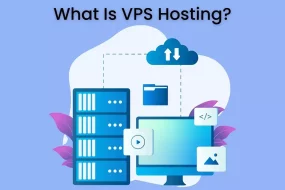
In the dynamic landscape of web hosting, the concept of scalability plays a pivotal role, especially in the realm of Virtual Private Servers (VPS). Understanding how scalability operates within VPS hosting is crucial for businesses aiming to strike the right balance between performance and resource utilization. In this comprehensive guide, we delve deep into the intricacies of VPS scalability, shedding light on its mechanisms, benefits, and implications.
Unveiling the Foundation: What is VPS Hosting?
Before we embark on the scalability journey, let’s establish a foundational understanding of VPS hosting. A Virtual Private Server is a virtualized server within a physical server, providing users with dedicated resources and a level of isolation akin to a dedicated server. This ensures enhanced performance and flexibility compared to shared hosting.
The Dynamics of Scalability
Scalability Defined
Scalability refers to a system’s ability to handle increased workload or demand gracefully. In the context of VPS hosting, scalability translates into the server’s capacity to efficiently manage growing traffic, applications, and data.
Vertical vs. Horizontal Scaling
Vertical Scaling: Involves increasing the resources of a single server, such as RAM or CPU, to meet higher demands.
Horizontal Scaling: Entails adding more servers to distribute the load, providing a more distributed and redundant infrastructure.
Automated Scaling Solutions
Leveraging automation tools allows seamless adjustments to resources based on real-time demands. This ensures optimal performance during traffic spikes without manual intervention.
Addressing FAQs on VPS Scalability
FAQ 1: Can I Scale Resources Instantly?
Yes, with vertical scaling, you can dynamically adjust resources without downtime, ensuring uninterrupted service during traffic surges.
FAQ 2: Is Horizontal Scaling Always Necessary?
While it offers excellent scalability, horizontal scaling may not be required for smaller websites. Vertical scaling can often suffice.
FAQ 3: What Metrics Indicate the Need for Scaling?
Monitoring CPU usage, RAM utilization, and website response times are key indicators. Consistent analysis helps anticipate scaling needs.
FAQ 4: Do All Hosting Providers Offer Scalability?
Not necessarily. Choose a VPS hosting provider that explicitly supports scalability features, ensuring your website’s future growth.
FAQ 5: Is Scalability Only About Handling Traffic Surges?
Beyond handling increased traffic, scalability enhances overall performance, allowing your website to adapt to evolving requirements seamlessly.
Final Words: Navigating the Scalability Terrain
In conclusion, the scalability of VPS hosting is not a one-size-fits-all solution. Businesses must carefully assess their current and future needs, opting for a hosting environment that aligns with their growth trajectory. Whether it’s vertical or horizontal scaling, the key lies in anticipating and adapting to the evolving demands of the digital landscape.
Commonly Asked Questions: Solutions Unveiled
Q1. How do I Determine the Right Scaling Strategy for My Website?
Assess your website’s current traffic patterns and projected growth. Vertical scaling suits gradual growth, while horizontal scaling is ideal for sudden spikes.
Q2. Can I Scale Down Resources During Periods of Low Traffic?
Absolutely. Vertical scaling allows you to fine-tune resources based on actual usage, ensuring cost-effectiveness during low-traffic intervals.
Q3. Are There Risks Associated with Over-Scaling Resources?
Over-scaling can lead to unnecessary expenses. Regularly monitor your website’s performance metrics to make informed scaling decisions.
Q4. What Role Does Load Balancing Play in Horizontal Scaling?
Load balancing ensures even distribution of traffic among multiple servers, preventing overload on any single server and optimizing overall performance.
Q5. Should I Consider Cloud-Based VPS for Enhanced Scalability?
Cloud-based VPS offers unparalleled scalability, allowing you to scale resources on-demand, making it a suitable choice for dynamic websites.
Advertisement








